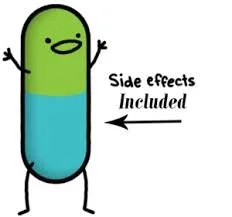A recent study found that men taking either of the two most common oral medications for advanced prostate cancer who also received hormone therapy (ADT) were at a higher risk of serious metabolic or cardiovascular issues than men who only received hormone therapy, according to Michigan Medicine researchers.
Men on abiraterone (Zytiga) had 1.77 times the chance of being admitted to the emergency department or hospital owing to diabetes, hypertension, or heart disease as compared to those on just hormone therapy. Those using enzalutamide (Xtandi) were 1.22 times more likely to develop these problems.
Individuals using abiraterone were also more likely than non-abiraterone patients to require an outpatient visit with their physician for at least one of these health issues. For individuals on enzalutamide, this was not be the case.
Both abiraterone and enzalutamide were found to be relatively safe in clinical trials, but worries that the demographic of patients in the studies were different from those in real-life settings encouraged the researchers to reevaluate the medications' effects.
For example, in one study, only people with Medicare health insurance were evaluated, and the majority of males studied were substantially older than those in the medications' clinical trials.
"Patients recruited in clinical trials tend to be highly selected and often do not reflect the patient population in day-to-day practice," said Lillian Y. Lai, M.D., M.S., the study's first author and a National Institutes of Health T32 Urologic Oncology Research Fellow at Michigan Medicine. "Trial participants are also subjected to thorough safety reviews that some of our patients do not receive." We can better understand the dangers of these life-extending cancer medicines and help doctors and patients make educated treatment decisions by examining adverse events in real-world situations."
Because metabolic and cardiovascular diseases are often managed by primary care doctors, Lai and her colleagues advocate team-based therapy involving PCPs for patients with advanced prostate cancer to control these elevated risks.
"As the indications for abiraterone and enzalutamide are expanded to earlier stages of the disease, a growing proportion of men will receive these medications for longer periods of time," Lai added. "This has the potential to broaden the number of males impacted and enhance the degree of the risks of adverse outcomes, making careful treatment of these issues critical."
These findings do not contradict the use of these two drugs. The findings do confirm that men taking these drugs should be closely monitored for these negative side effects.
Paper cited: “Risk of metabolic and cardiovascular adverse events with abiraterone or enzalutamide among men with advanced prostate cancer,” Journal of the National Cancer Institute. DOI: 10.1093/jnci/djac081



